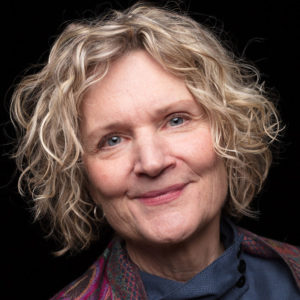Editor’s Note: “Poems to Listen By” is an audio series where, over time, we will explore some of the themes in the Poet Laura checklist, as well as Tweetspeak’s “Year of Wisdom” theme throughout 2020.
_______
Poems to Listen By: Sharing the Canopy: 8 Ways Trees Embody Our Stories—Benedictus. Presented by Laurie Klein
Audio script:
From swaying crowns to roots, from rigid bark to heartwood, from understory to back story (and beyond!), trees—and tree poems—may arrest us, move us, even re-root us.
In her poem “Benedictus,” Luci Shaw writes:
When a tree is topped
for the power lines,
the emptiness afterwards is
inhabited by a green
throb of leaves.
Like the vividness we feel about
someone just dead,
the gap
shivers with presence.
In a similar vein, poet Paul J. Willis reminisces while hiking in the wilderness, with its storied cliffs and forests.
Amid his personal loss (and eventual gain), Willis describes a dream, almost a “Ghost Story.”
[Sustainability poem]
I wonder: When have you encountered a jolt of eternity? How did it change or illumine you? I hope you’ll daydream about it; perhaps, write about it . . .
Poetry Prompt
Write a poem about a way that a sense of mortality or eternity ignited something new in you. What changed in your understanding or your actions?
Browse More Poems to Listen By with Laurie Klein
Photo by Hannes Flo, Creative Commons license via Flickr. Poems used with permission. Audio and script by Laurie Klein with thanks to Pat Stien for direction and Bill Klein for engineering and music from his solo album, “Lauda.”
____________________________________________________________________
Shaw, Luci, “Benedictus,” in The Green Earth: Poems of Creation (Grand Rapids, Michigan: Wm. B. Eerdmans Publishing Co., 2002), 62.
Willis, Paul J., “Sustainability,” in Deer at Twilight (Nagadoches, TX: Stephen F. Austin University Press, 2018), 94.
- Poems to Listen By: Yondering—7: When You Came Back - April 16, 2025
- Poems to Listen By: Yondering—6: Restricted Travel - March 26, 2025
- Poems to Listen By: Yondering—5: Upon Arrival - March 12, 2025


L.L. Barkat says
Laurie, this is such a generous reading. I listened three times, and I know I will come back to listen again. The glow of the larches infuses everything.
(I’m curious. When you do a piece like this, do you choose a central image to guide you with the emotion of it—and then sort of come back to that image in your mind’s eye and heart’s ear, even as you are at different points in the reading? If not, I’d be interested to hear the other ways you go about creating a sense of unity from start to finish in the reading. 🙂 )
Laurie Klein says
Laura, what great questions! Thank you. I love hearing that autumn’s larch glow threads through everything.
And I’m grateful you found lines to return to and ponder. I start by analyzing who is speaking, and who that persona is addressing, and where, and how. And how does this alter the speaker as well as the reader/listener as the poem unfolds.
I find that visualization is key; trying to see/hear/smell/feel each image clearly in the mind’s eye guides empathy, timing, and expression. I try to hear the words as I speak them as if for the first time, letting them surprise me even though I know them pretty thoroughly by the time I record them. And I look for the line (or image) that, for me, is the heart of the poem (usually about 3/4 the way down or even the last line), and I pencil in a little heart there, in the left margin), so I’m reading toward that line yet trying to live each line preceding it. Does that make sense?
Sandra Heska King says
I tend to sprint through a poem. But Laurie, your readings transport me to another space. I even start to breathe slower.
When my mom was living her last days in a hospice house, my sister and I stayed there with her. We would wheel her outside to smoke. But she would also gaze for hours at the sky through her thick scratched lenses. She talked about seeing sunspots (and moon spots at night), which I’m guessing was the way the light was refracting off her lenses. Or maybe she was seeing something beyond that we couldn’t. She also watched the birds–a new thing with her. We dubbed her Mother Mary Esther of the Order of Perpetual Birdwatchers.
I was at her bedside when she died. She had been sleeping for days, but then her eyes flew open–once cloudy, now the clearest blue–and then her spirit left her body with an audible what I would describe as a “clunk.” A literal jolt into eternity. I’ll never forget it. I wonder what kind of light she was seeing then.
Please don’t ever stop doing these readings. 🙂
Laurie Klein says
Ah, I remember reading that wonderful piece you wrote about your mom’s final days (when we both were in Megan’s class. It moved me then: the scene, the surprising details, the people, the love. I don’t remember if you included the sun/moonspots she experienced, but that really arrests me today (which lets my imagination beat its wings and rise). Have you written about those? I could imagine a list poem akin to Neruda’s ode to those socks as you speculate. If you write it, will you let me read it? 🙂
I’ve never heard anyone describe the moment of crossing over as a “clunk.” And those eyes, cleared, expectant, and luminous. Thanks for telling me about it. Feeling goosebumps . . .
Bethany R. says
Such a gift, these beautiful readings. I will second Sandra’s request to continue them. Your voice and sensitivity to the content is comforting and knowing.
Laurie Klein says
Dear Bethany, thank you so much for listening! I really enjoyed working through, and with, these poems.
I’ve been daydreaming off and on about another series (in between caregiving stints for family), but I have yet to discover the organizing hunger and theme that will guide my search for material. Perhaps it will appear today . . .
Bethany says
Delighted to hear there’s potential for another series, whenever it works out. No rush. 🙂 It’s just nice to know there may be more. 🙂
Laurie Klein says
Bethany, I am so grateful to hear you’re enjoying the series and are interested in hearing more! Thank you!